
Бесплатный фрагмент - Spoken English Conversation Practice
500 Mini-Dialogues for Beginners
Introduction
Are you trying to learn English? The illustrated teach-yourself tutorial “Spoken English Conversation Practice: 500 Mini-Dialogues for Beginners” allows you to greatly expand your active vocabulary and practice the use of various verb forms and prepositions in speech.
This book consists of 500 mini-dialogues on everyday topics interconnected by meaning and contains about 1,300 commonly used English words and expressions. A list containing the new words along with their transcription follows each dialogue. To reinforce learning, revision tasks are offered after each topic.
This tutorial is intended for beginning and intermediate learners of English.
Teachers of English can use this manual to create game situations so students can practice language constructions in a more emotional and effective way.
This tutorial uses American English; British equivalents of words and word combinations are given as required.
About the Author
Artsun Akopyan is a writer and freelance translator based in Russia. He worked at a high school teaching Russian and at a university teaching English. His publications include books for English language learners, short stories and novels, translations of fiction and nonfiction books from English into Russian.
Waking Up in the Morning
In English, dialogues are surrounded by quotation marks: “…”.
New words in dialogues are highlighted in bold.
1
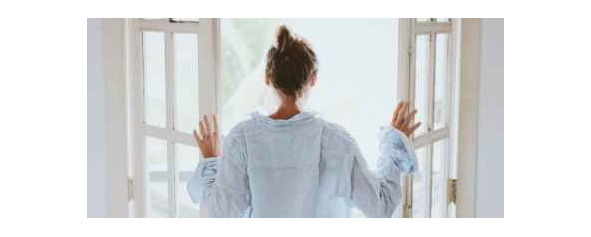
Translate the dialogue into your language:
“It’s getting light already! Good morning!”
“Morning!”
Translate the following new words into your language:
it [it]
is [iz]
it’s = it is
get [get]
light [lait]
getting light
already [ɔ:l‘redi]
good [gud]
morning [‘mɔ: rniŋ]
In English, people often say “Morning!” in reply to the greeting “Good morning!”
2
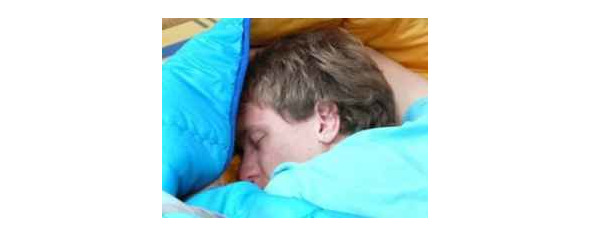
“Is he asleep?”
“Yes. Wake him up!”
he [hi, STRONG hi: ]
asleep [ə‘sli: p] (compare: sleep [sli: p])
yes [jes]
wake [weik]
him [him] (base form: he [hi, hi: ])
up [ʌp]
3
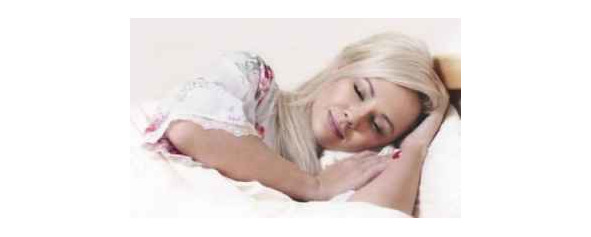
“Is she sleeping?”
“Yeah. Wake her up!”
she [ʃi, STRONG ʃi: ]
sleeping [‘sli: piŋ] (base form: sleep [sli: p])
yeah [jeə] (base form: yes)
her [hər, hə: r] (base form: she)
4
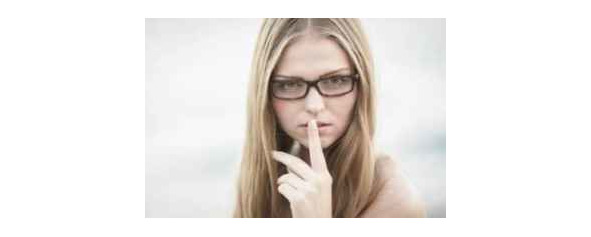
“Sh! Shush!”
“Why are you shushing me?”
sh [ʃ]
shush [ʃʊʃ, ʃʌʃ]
why [wai]
are [ər, STRONG ɑ:r] (base form: be [bi, bi: ])
you [ju: ]
shushing (base form: shush [ʃʊʃ, ʃʌʃ])
me [mi, mi: ]
5
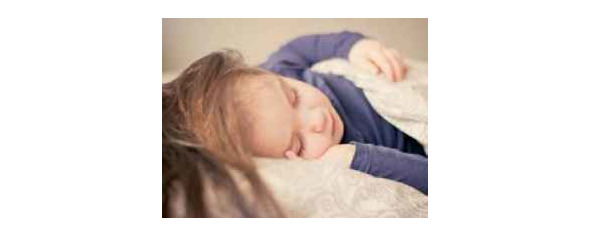
“Do not wake her up.”
“I won’t.”
do [də, STRONG du: ]
not [nɔt]
won’t = will not
will [wil]
I won’t (= will not)
6
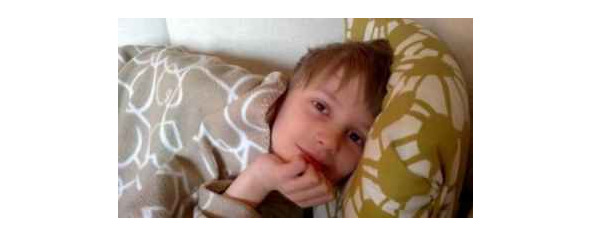
“Wake up, sleepyhead!”
“I’m awake.”
I’m = I am
sleepyhead [‘sli: pihed] (sleepy + head)
awake [ə‘weik]
I’m awake
7
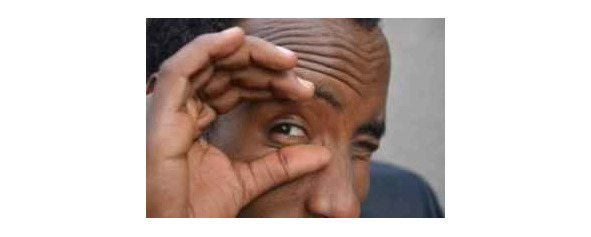
“Have you been awake for a long time?”
“No. I’ve just woken up.”
have [həv, hæv]
been [bin, bi: n]
for [fər, fɔ: r]
a [ə, ei]
long [lɔŋ, lɔ: ŋ]
time [taim]
no [noʊ]
I’ve = I have
just [ʤʌst]
woken [‘woʊkən] (base form: wake [weik])
8
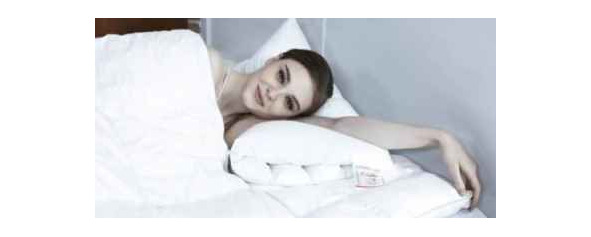
“How long have you been awake?”
“For an hour.”
how long
an [ən, æn] = a (an is used before words beginning with a vowel sound)
hour [aʊər]
an hour
9
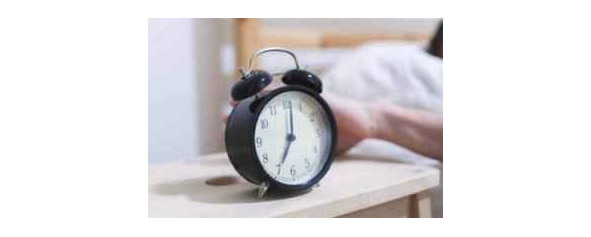
“What time did you wake up?”
“I woke up at seven in the morning.”
what [wɔt]
did [did] (base form: do [də, du: ])
woke [woʊk]
at [ət, æt]
seven [‘sevən]
at seven
in [in]
in the morning
10
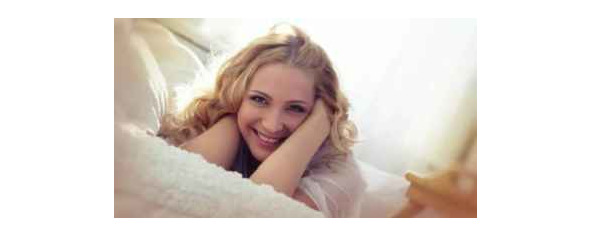
“Did you have a good sleep?”
“Yes, I did.”
sleep [sli: p]
have a good sleep
yes, I did
11
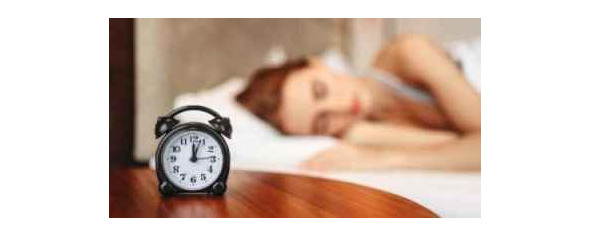
“Did she wake up at seven?”
“Nope. She overslept.”
nope [noʊp]
overslept [oʊvər‘slept] (oversleep [oʊvər‘sli: p])
Revision
Translate the dialogues from English into your language.
1.
“It’s getting light already! Good morning!”
“Morning!”
2.
“Is he asleep?”
“Yes. Wake him up!”
3.
“Is she sleeping?”
“Yeah. Wake her up!”
4.
“Sh! Shush!”
“Why are you shushing me?”
5.
“Do not wake her up.”
“I won’t.”
6.
“Wake up, sleepyhead!”
“I’m awake.”
7.
“Have you been awake for a long time?”
“No. I’ve just woken up.”
8.
“How long have you been awake?”
“For an hour.”
9.
“What time did you wake up?”
“I woke up at seven in the morning.”
10.
“Did you have a good sleep?”
“Yes, I did.”
11.
“Did she wake up at seven?”
“Nope. She overslept.”
Getting Up
12
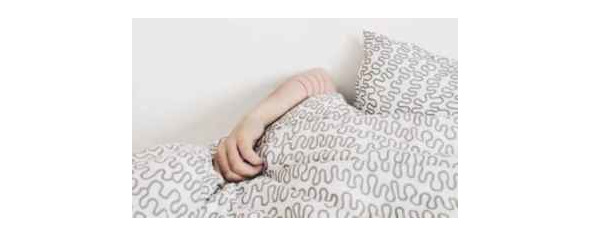
“Are you not sleeping? Get up!”
“I don’t want to!”
get up
13
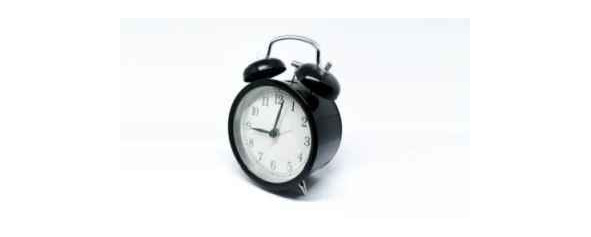
“Look at the clock. It’s time to get up.”
“No, it’s too early.”
look [lʊk]
time [taim]
too early
14
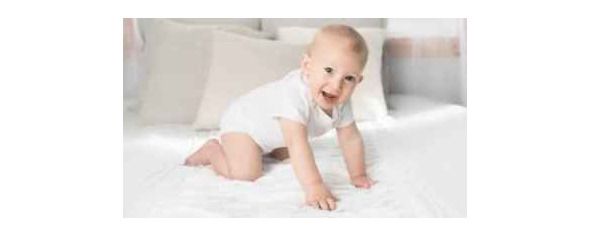
“Is the toddler getting up?”
“It is trying to, but it can’t.”
toddler [tɔdlər]
trying [traiiŋ] (base form: try [trai])
but [bət, STRONG bʌt]
can’t [AM kænt, BRIT kɑ: nt] = cannot [‘kænɔt]
15
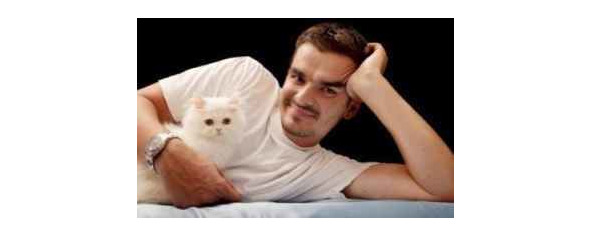
“When are you going to get up?”
“In a minute.”
when [wen]
go [goʊ]
going [‘goʊiŋ]
(be) going to
in a minute
16
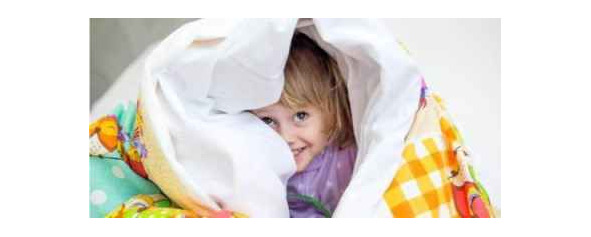
“Get out of bed!”
“I don’t want to!”
get out
get out of
bed [bed]
17
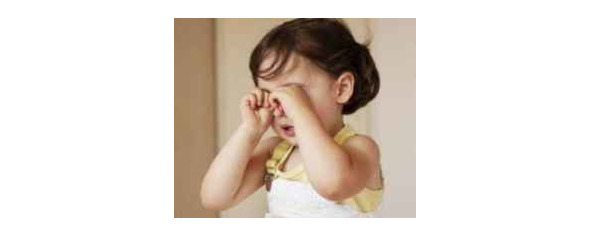
“Don’t rub your eyes!”
“Why not?”
rub [rʌb]
your [jɔ: r, jʊər]
eyes [aiz] (base form: eye [ai])
why [wai]
why not
18
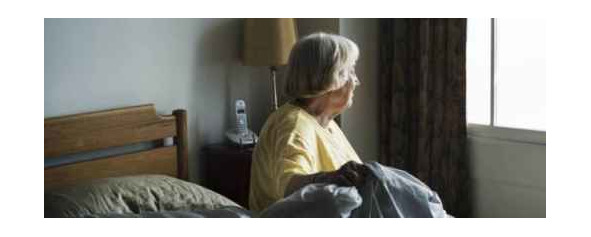
“Granny, have you gotten up?” (“Granny, have you got up?” — BRIT)
“No, I have just sat up.”
granny [‘græni]
gotten [‘gɔtən] (AM) = got [gɔt] (BRIT) (base form: get [get])
gotten up
sat up
19
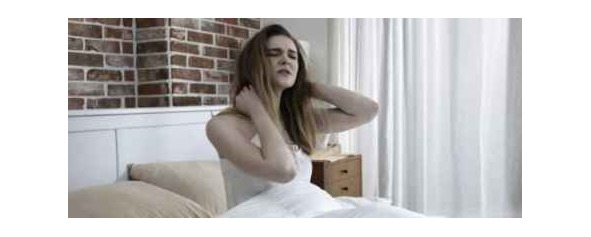
“Why are you rubbing your neck?”
“It is numb.”
rubbing [‘rʌbiŋ] (base form: rub [rʌb])
neck [nek]
numb [nʌm]
20
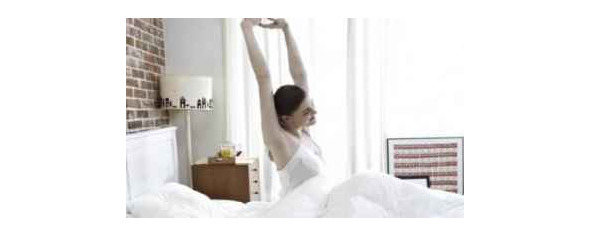
“Stretch in bed!”
“I’m stretching.”
stretch [stretʃ]
stretching [‘streʧiŋ]
21
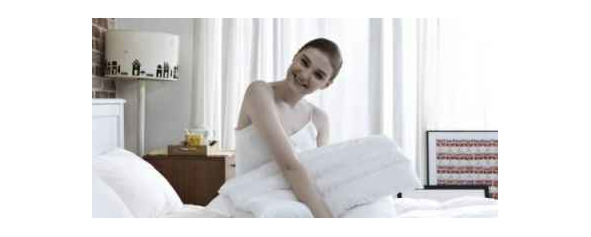
“Are you all right now?”
“Yes, I am.”
all [ɔ:l]
right [rait]
all right
now [naʊ]
22
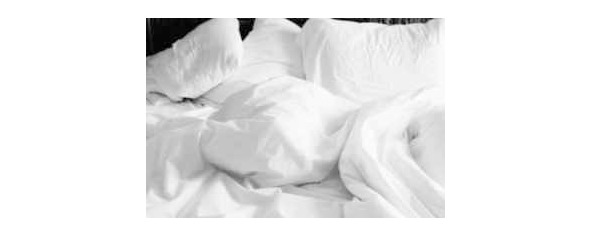
“Have you gotten up?” (“Have you got up?” — BRIT)
“Yes, I have. I feel great!”
feel [fi: l]
great [greit]
feel great
23
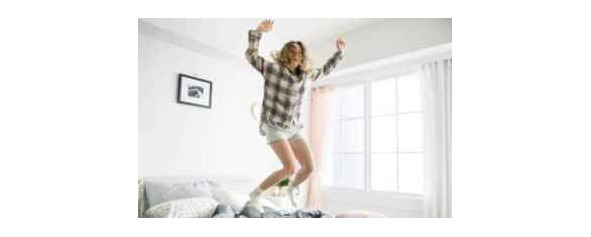
“Don’t jump on the bed!”
“I won’t anymore.”
jump [ʤʌmp]
anymore [eni‘mɔ: r]
24
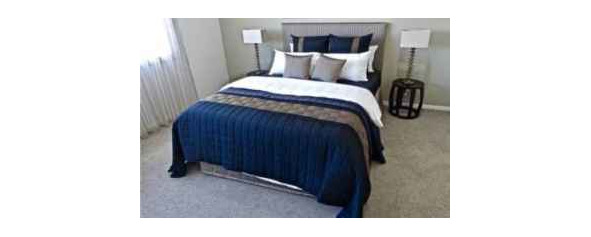
“Make the bed.”
“I’ve made it.”
make [meik]
make the bed
made [meid] (base form: make [meik])
Revision
Translate the dialogues from English into your language.
12.
“Are you not sleeping? Get up!”
“I don’t want to!”
13.
“Look at the clock. It’s time to get up.”
“No, it’s too early.”
14.
“Is the toddler getting up?”
“It is trying to, but it can’t.”
15.
“When are you going to get up?”
“In a minute.”
16.
“Get out of bed!”
“I don’t want to!”
17.
“Don’t rub your eyes!”
“Why not?”
18.
“Granny, have you gotten up?”
“No, I have just sat up.”
19.
“Why are you rubbing your neck?”
“It is numb.”
20.
“Stretch in bed!”
“I’m stretching.”
21.
“Are you all right now?”
“Yes, I am.”
22.
“Have you gotten up?”
“Yes, I have. I feel great!”
23.
“Don’t jump on the bed!”
“I won’t anymore.”
24.
“Make the bed.”
“I’ve made it.”
Using the Bathroom
25
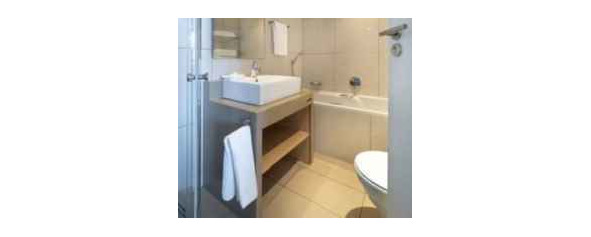
“Walk to the bathroom.”
“I’m walking there.”
walk [wɔ: k]
bathroom [‘bæθru: m]
walking [‘wɔ: kiŋ]
there [ðeər]
26
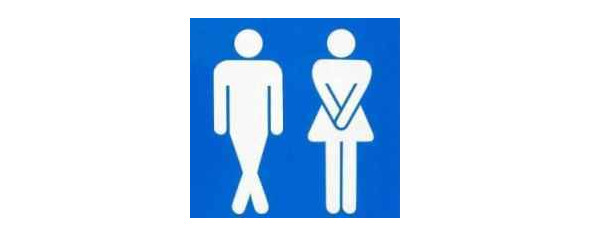
“Do you want to pee?”
“Yes, I do.”
pee [pi: ]
27
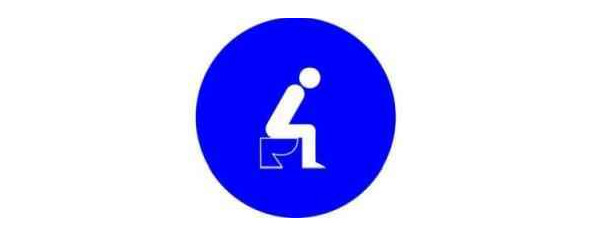
“Do you want to poop?”
“No, I don’t.”
poop [pu: p]
28
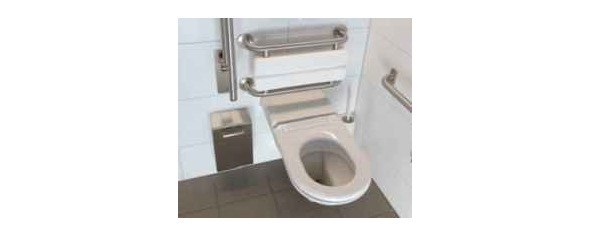
“Use the toilet.”
“I have used it.”
use [ju: z]
toilet [‘tɔilət]
used [ju: zd]
29
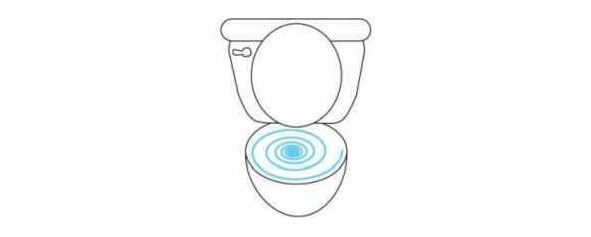
“Flush the toilet.”
“I have flushed it.”
flush [flʌʃ]
flushed [flʌʃt]
Revision
Translate the dialogues from English into your language.
25.
“Walk to the bathroom.”
“I’m walking there.”
26.
“Do you want to pee?”
“Yes, I do.”
27.
“Do you want to poop?”
“No, I don’t.”
28.
“Use the toilet.”
“I have used it.”
29.
“Flush the toilet.”
“I have flushed it.”
Washing
30
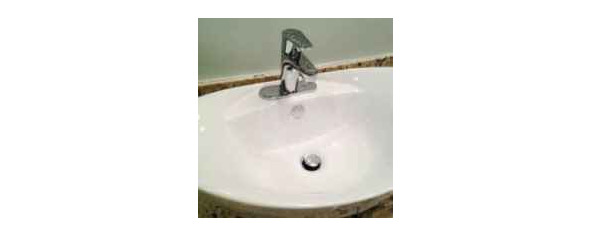
“Move to the sink.”
“I am standing before it.”
move [mu: v]
sink [siŋk]
standing [‘stændiŋ]
before [bi‘fɔ: r]
31
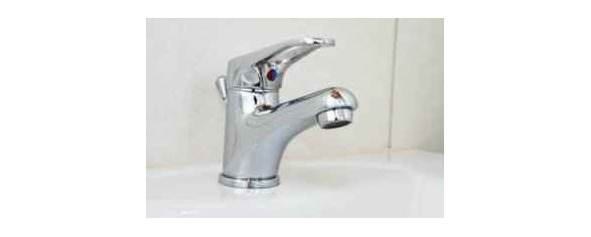
“Turn on the faucet.”
“I will do it now.”
turn [tə: rn]
on [ɔn]
turn on
faucet [‘fɔ: sit] (AM) = tap [tæp] (BRIT)
32
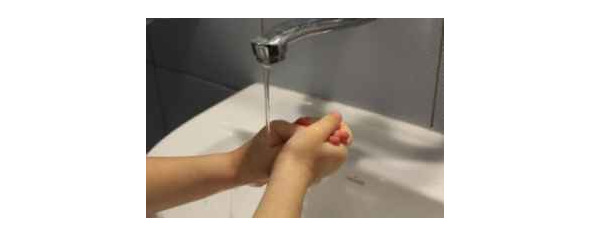
“Wet your hands with water.”
“I have wet them.”
wet [wet]
hand [hænd]
hands [hændz]
with [wið]
water [‘wɔ: tər]
33
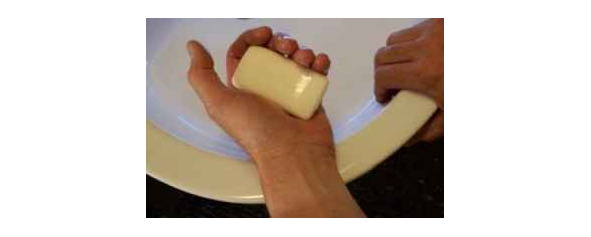
“Take a bar of soap.”
“I have taken one.”
take [teik]
bar [bɑ: r]
soap [soʊp]
taken [‘teikən]
one [wʌn]
34
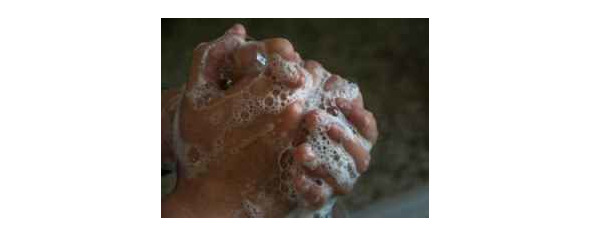
“Soap your hands.”
“I have soaped them.”
soap [soʊp]
soaped [soʊpt]
35
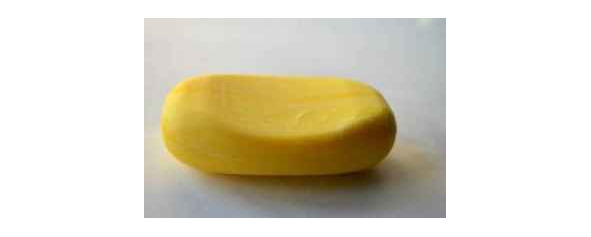
“Put down the soap.”
“I have put it down.”
put down
36
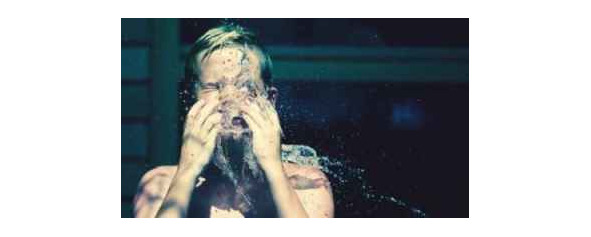
“Wash your face and hands!”
“I am washing them.”
face [feis]
37
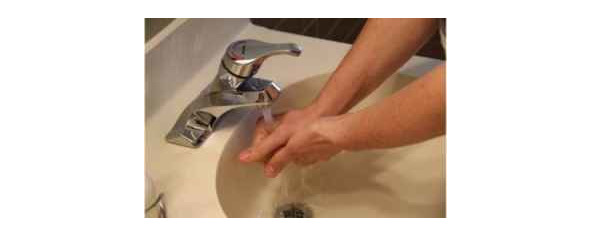
“Wash off all of the soap.”
“I have washed it off.”
off [ɔ:f]
wash off
washed off
38
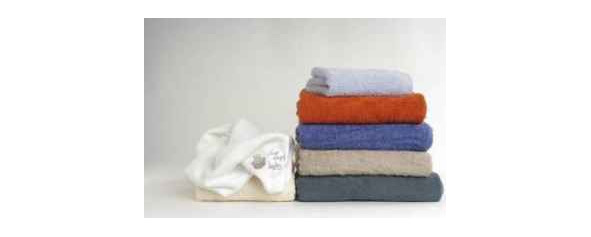
“Wipe your hands and face with a towel.”
“I have wiped them.”
wipe [waip]
towel [‘taʊəl]
wiped [waipt]
Revision
Translate the dialogues from English into your language.
30.
“Move to the sink.”
“I am standing before it.”
31.
“Turn on the faucet.”
“I will do it now.”
32.
“Wet your hands with water.”
“I have wet them.”
33.
“Take a bar of soap.”
“I have taken one.”
34.
“Soap your hands.”
“I have soaped them.”
35.
“Put down the soap.”
“I have put it down.”
36.
“Wash your face and hands!”
“I am washing them.”
37.
“Wash off all of the soap.”
“I have washed it off.”
38.
“Wipe your hands and face with a towel.”
“I have wiped them.”
Morning Exercises
39
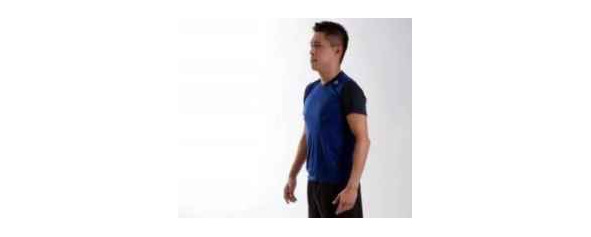
“What are you going to do next?”
“My morning exercises.”
next [nekst]
my [mai]
exercise [‘eksərsaiz]
exercises [‘eksərsaiziz]
40
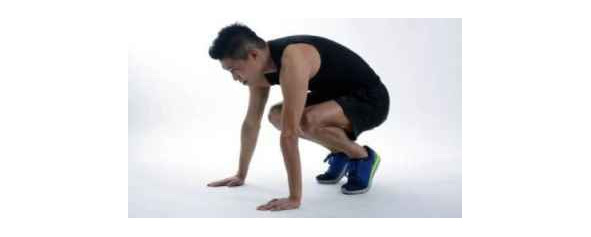
“What are you doing?”
“I’m doing squats.”
doing [‘du: iŋ] (base form: do [də, du: ])
squat [skwɔt]
squats [skwɔts]
41
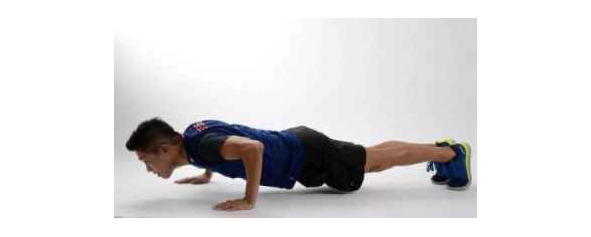
“What are you doing now?”
“I’m doing push-ups.”
push [pʊʃ]
push-up [‘puʃʌp]
push-ups [‘puʃʌps]
42
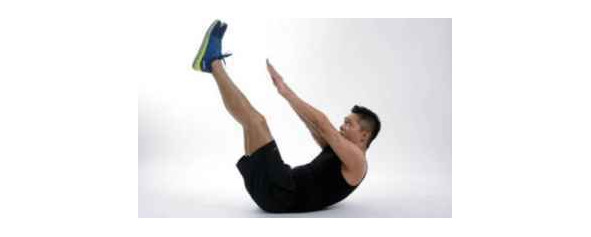
“What are you doing at the moment?”
“I’m doing abdominal crunches.”
moment [‘moʊmənt]
abdomen [‘æbdəmen]
abdominal [æb‘dɔminəl]
crunch [krʌntʃ]
abdominal crunches
43
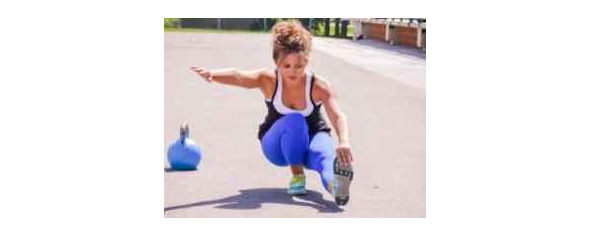
“What is she doing?”
“She’s doing one-leg squats.”
leg [leg]
one-leg [wʌn‘leg]
44
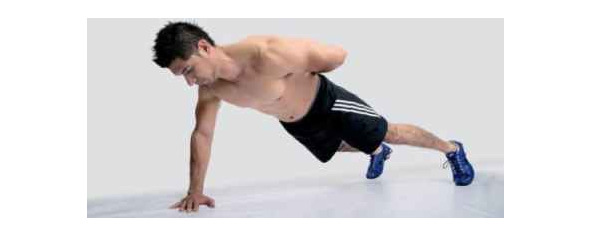
“What is he doing?”
“He’s doing one-arm push-ups.”
arm [ɑ: rm]
one-arm [wʌn‘ɑ: rm]
45
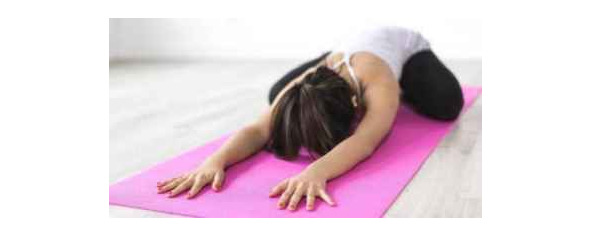
“Stretch after the workout.”
“I am stretching.”
workout [‘wə: rkaʊt]
46
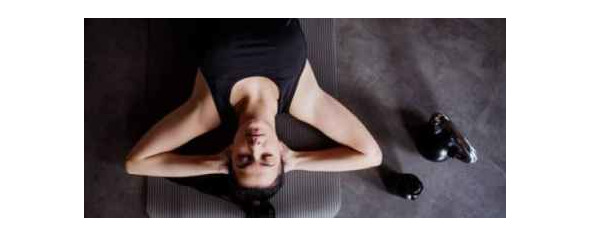
“Are you tired? Have a rest!”
“I am having a rest.”
tired [‘taiərd]
have a rest
having a rest
47
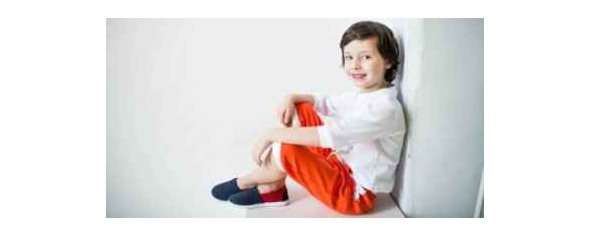
“Have you finished your workout?”
“Yes, I have, but I’m not tired.”
finish [‘finiʃ]
finished [‘finiʃt]
Revision
Translate the dialogues from English into your language.
39.
“What are you going to do next?”
“My morning exercises.”
40.
“What are you doing?”
“I’m doing squats.”
41.
“What are you doing now?”
“I’m doing push-ups.”
42.
“What are you doing at the moment?”
“I’m doing abdominal crunches.”
43.
“What is she doing?”
“She’s doing one-leg squats.”
44.
“What is he doing?”
“He’s doing one-arm push-ups.”
45.
“Stretch after the workout.”
“I am stretching.”
46.
“Are you tired? Have a rest!”
“I am having a rest.”
47.
“Have you finished your workout?”
“Yes, I have, but I’m not tired.”
In the Shower
48
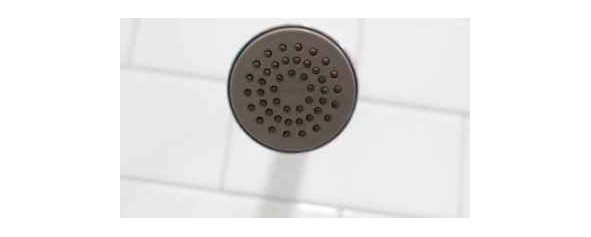
“Will you take a shower?”
“Yes, I will.”
shower [ʃaʊər]
take a shower
49
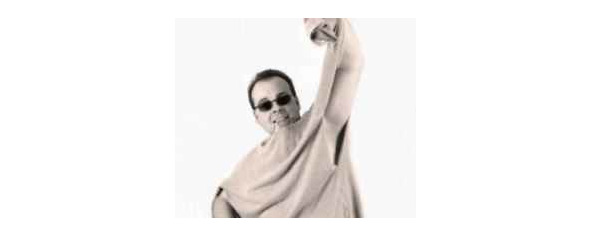
“Take off your clothes.”
“I’m trying to.”
take off
clothes [kloʊðz]
50
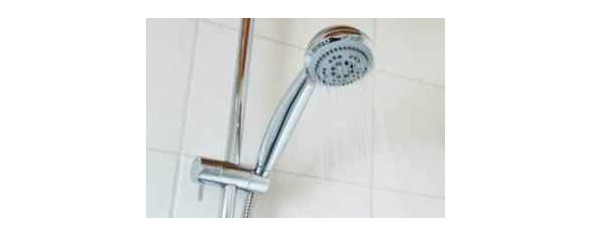
“Have you started showering?”
“Yes, I’m already in the shower.”
start [stɑ: rt]
started [‘stɑ: rtid]
shower [‘ʃaʊər]
showering
in the shower
51
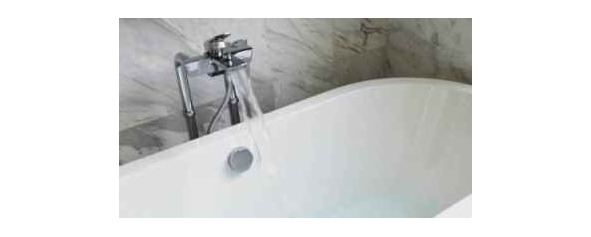
“Take a bath.”
“I don’t want to.”
bath [bæθ]
take a bath
52
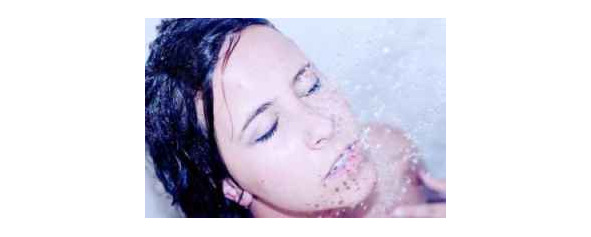
“Wash your head!”
“I’m washing it.”
head [hed]
53
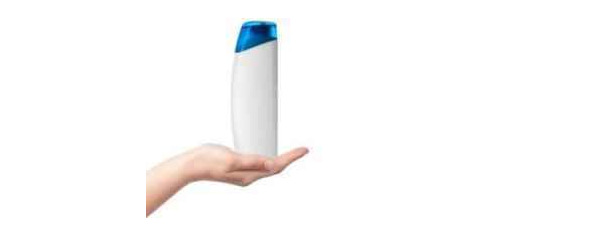
“Take the shampoo bottle.”
“I’ve taken it.”
shampoo [ʃæm‘pu: ]
bottle [‘bɔtəl]
shampoo bottle
54
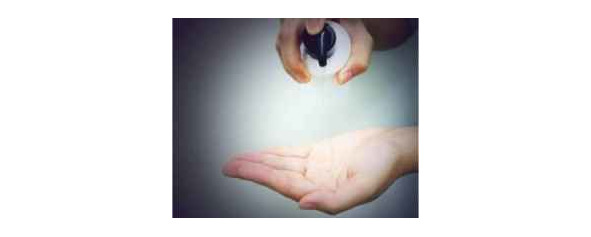
“Squeeze out some shampoo into your hand.”
“I’m squeezing it out.”
squeeze [skwi: z]
squeeze out
some [sʌm]
squeezing out
55
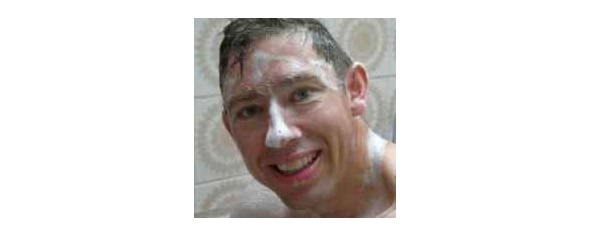
“Lather up your head with the shampoo.”
“Done.”
lather [‘læðər]
lather up
done [dʌn] (base form: do [du: ])
56
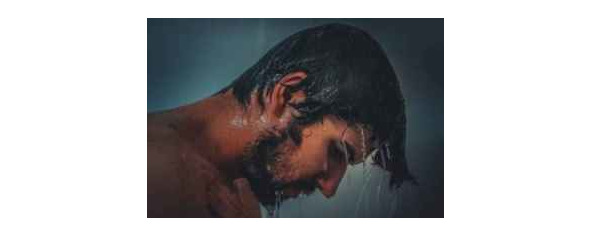
“Rinse your hair well.”
“I’m rinsing it.”
rinse [rins]
hair [heər]
well [wel]
rinsing [‘rinsiŋ]
57
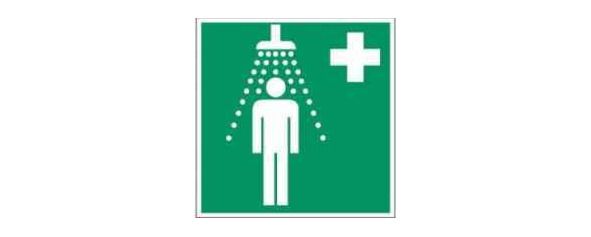
“Wash your whole body.
“I’m washing it.”
whole [hoʊl]
body [‘bɔdi]
whole body
58
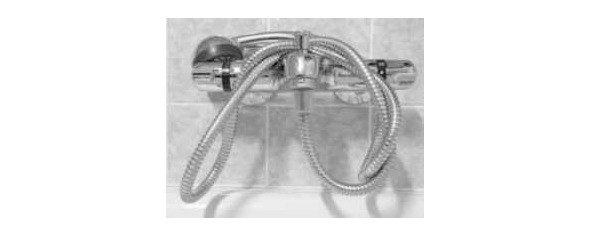
“Don’t forget to turn off the faucet.”
“I have turned it off.”
forget [fər‘get]
turn off
turned off
59
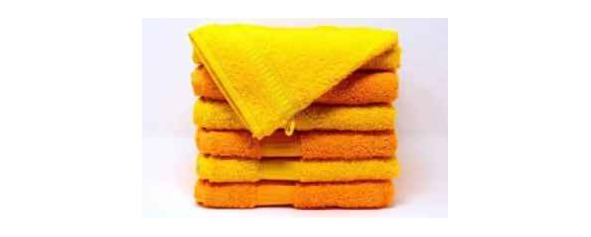
“Dry yourself with a towel.”
“I’ve dried myself.”
dry [drai]
dry yourself
dried myself
60
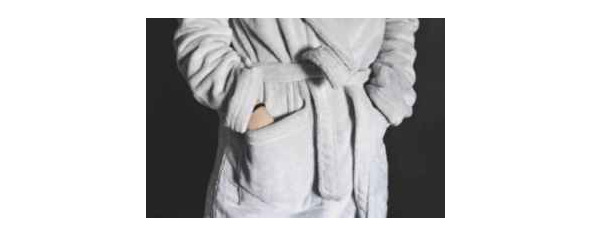
“Put on the bathrobe.”
“I’ve put it on.”
put on
bathrobe [‘bæθroʊb]
61
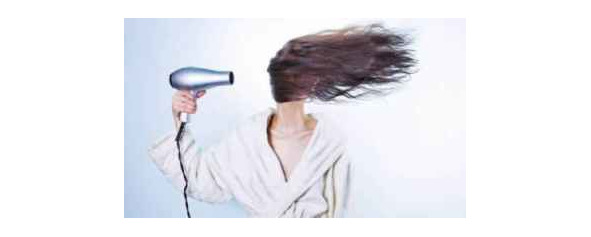
“Dry your hair with a hairdryer.”
“I’m drying it.”
hairdryer [‘heərdraiər]
drying [‘draiiŋ]
Revision
Translate the dialogues from English into your language.
48.
“Will you take a shower?”
“Yes, I will.”
49.
“Take off your clothes.”
“I’m trying to.”
50.
“Have you started showering?”
“Yes, I’m already in the shower.”
51.
“Take a bath.”
“I don’t want to.”
52.
“Wash your head!”
“I’m washing it.”
53.
“Take the shampoo bottle.”
“I’ve taken it.”
54.
“Squeeze out some shampoo into your hand.”
“I’m squeezing it out.”
55.
“Lather up your head with the shampoo.”
“Done.”
56.
“Rinse your hair well.”
“I’m rinsing it.”
57.
“Wash your whole body.
“I’m washing it.”
58.
“Don’t forget to turn off the faucet.”
“I have turned it off.”
59.
“Dry yourself with a towel.”
“I’ve dried myself.”
60.
“Put on the bathrobe.”
“I’ve put it on.”
61.
“Dry your hair with a hairdryer.”
“I’m drying it.”
Cleaning Teeth
62
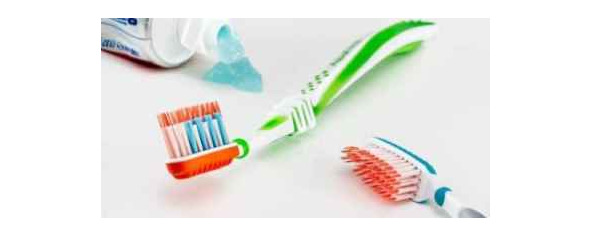
“Open the toothpaste tube.”
“I’ve opened it.”
open [‘oʊpən]
toothpaste [‘tu: θpeist]
tube [tu: b]
opened [‘oʊpənd]
63
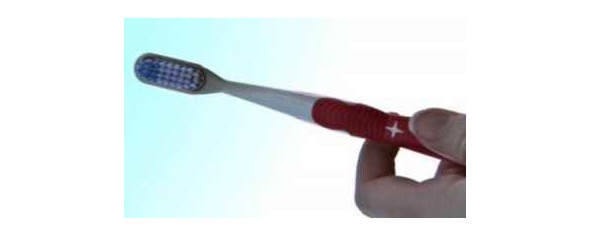
“Take a toothbrush.”
“I’ve taken it.”
toothbrush [‘tu: θbrʌʃ]
64
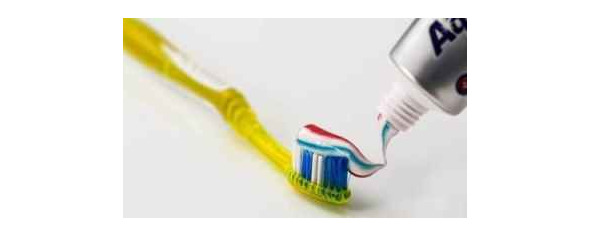
“Squeeze out the toothpaste onto the toothbrush.”
“I’ve squeezed it out.”
squeezed out
65
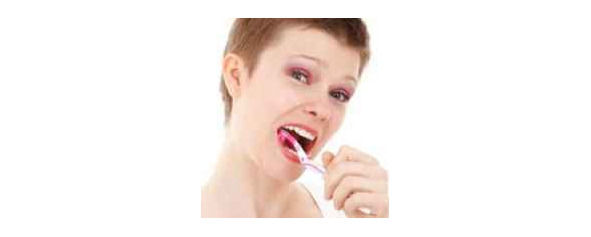
“Brush your teeth.”
“I’m brushing them.”
brush [brʌʃ]
teeth [ti: θ] (base form: tooth [tu: θ])
brushing
66
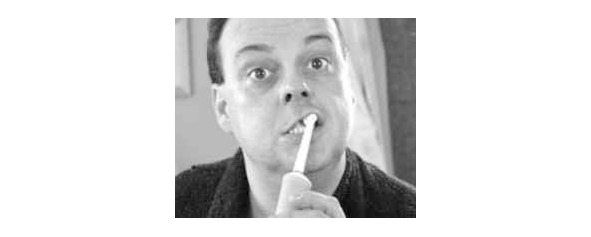
“What is he cleaning his teeth with?”
“An electric toothbrush.”
electric [i‘lektrik]
67
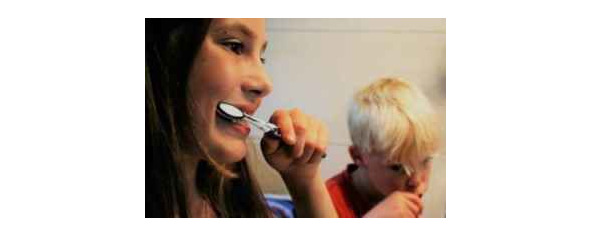
“Spit out the toothpaste.”
“I’ve spit it out.” (“I’ve spat it out.” — BRIT)
spit [spit]
spit out
68
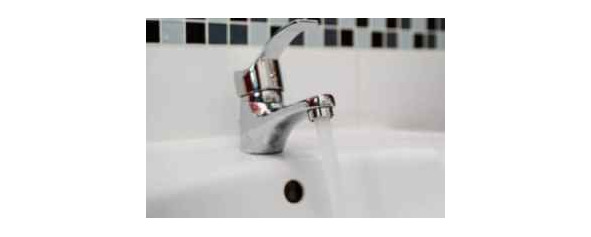
“Turn on the water in the sink.”
“I’ve turned it on.”
in the sink
69
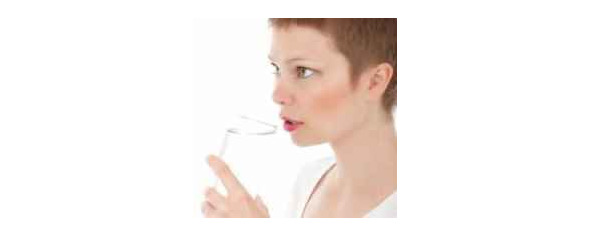
“Rinse your mouth with water.”
“I’m rinsing it.”
mouth [mauθ]
rinse your mouth
70
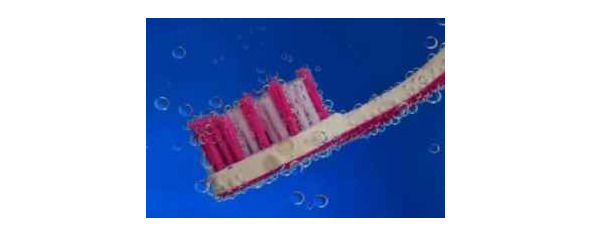
“Rinse the toothbrush.”
“I’m rinsing it.”
rinse the toothbrush
71
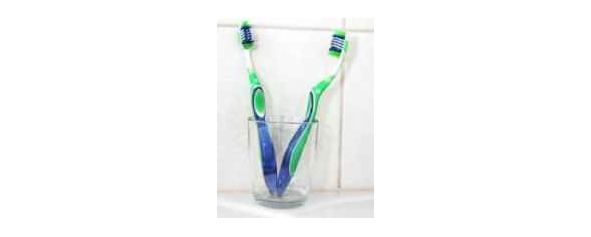
“Put the toothbrush in the glass.”
“I’ve put it in there.”
glass [glæs]
in there
72
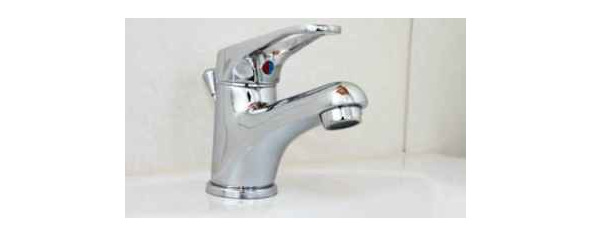
“Turn off the water.”
“I’ve turned it off.”
turn off the water
73
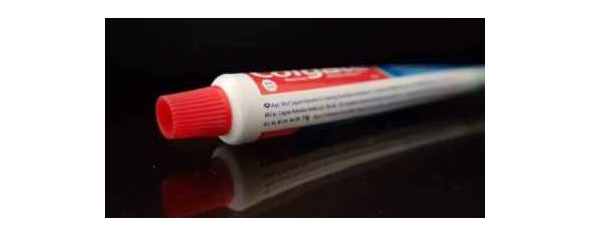
“Close the toothpaste tube.”
“I’ve closed it.”
close [kloʊz]
closed [kloʊzd]
Revision
Translate the dialogues from English into your language.
62.
“Open the toothpaste tube.”
“I’ve opened it.”
63.
“Take a toothbrush.”
“I’ve taken it.”
64.
“Squeeze out the toothpaste onto the toothbrush.”
“I’ve squeezed it out.”
65.
“Brush your teeth.”
“I’m brushing them.”
66.
“What is he cleaning his teeth with?”
“An electric toothbrush.”
67.
“Spit out the toothpaste.”
“I’ve spit it out.”
68.
“Turn on the water in the sink.”
“I’ve turned it on.”
69.
“Rinse your mouth with water.”
“I’m rinsing it.”
70.
“Rinse the toothbrush.”
“I’m rinsing it.”
71.
“Put the toothbrush in the glass.”
“I’ve put it in there.”
72.
“Turn off the water.”
“I’ve turned it off.”
73.
“Close the toothpaste tube.”
“I’ve closed it.”
Shaving
74
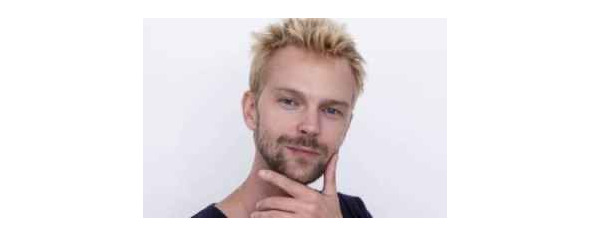
“Are you going to shave your face?”
“Yes, I am.”
shave [ʃeiv]
75
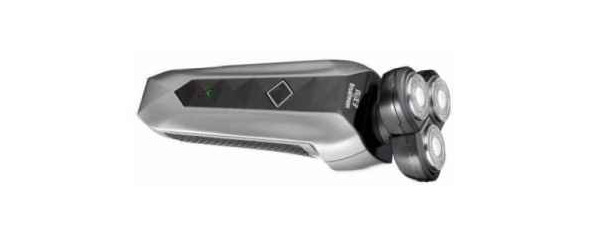
“Shave with an electric razor.”
“No, I don’t use one.”
shave with
razor [‘reizər]
electric razor
76
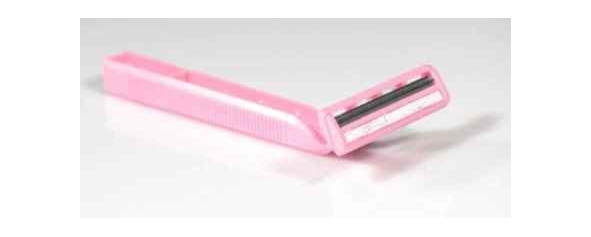
“Do you use a disposable razor?”
“No, I don’t.”
disposable [dis‘poʊzəbəl] (comes from: dispose [dis‘poʊz])
disposable razor
77
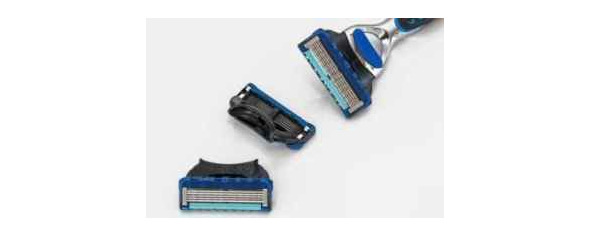
“Do you usually use a cartridge razor?
“Yes, I do.”
usually [‘ju: ʒuəli]
cartridge [‘kɑ: rtriʤ]
cartridge razor
78
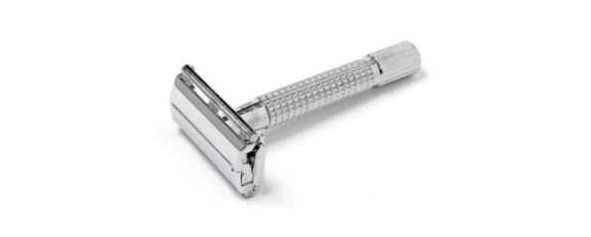
“Have you ever used a safety razor?”
“Yes, I have.”
ever [‘evər]
safety [‘seifti]
safety razor
79
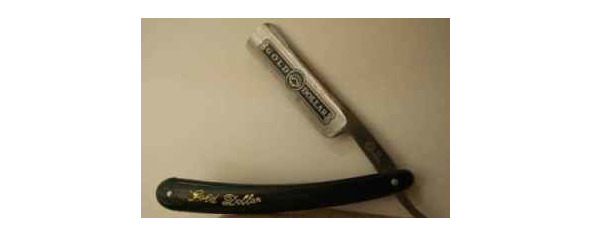
“Have you ever used a straight razor?”
“No, I haven’t.”
straight [streit]
straight razor = cut-throat razor
80
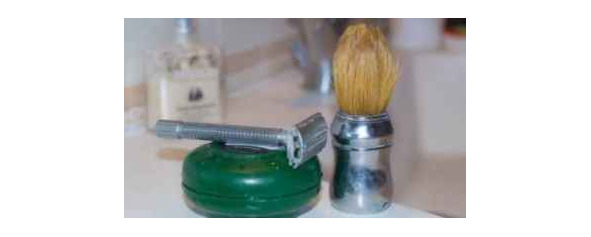
“Wet the shaving brush with warm water.”
“I’ve wet it.”
shaving brush [‘ʃeiviŋbrʌʃ]
warm [wɔ: rm]
81
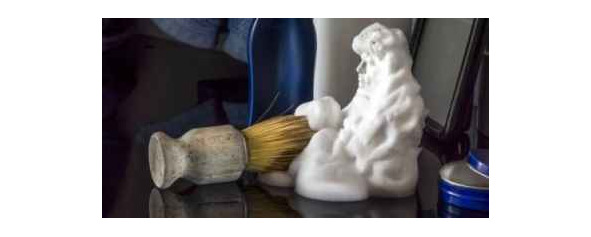
“Put the shaving cream on the brush.”
“I’ve put it on the brush.”
cream [kri: m]
shaving cream [‘ʃeiviŋkri: m]
82
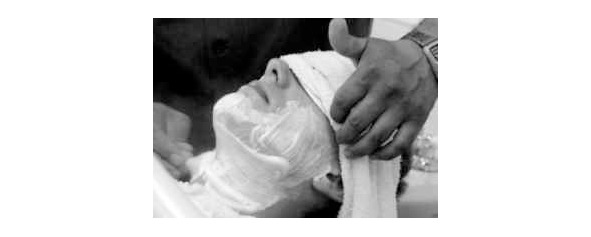
“Apply the shaving cream to your face.”
“I’ve applied it.”
apply [ə‘plai]
apply to
applied [ə‘plaid]
83
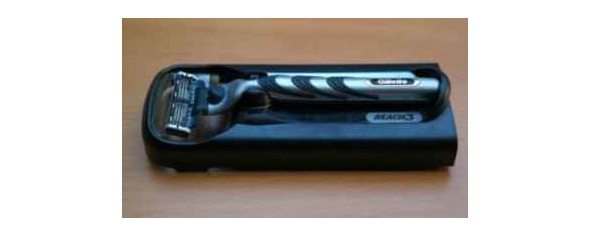
“Take a razor.”
“I’ll take this one.”
this [ðis]
this one
84
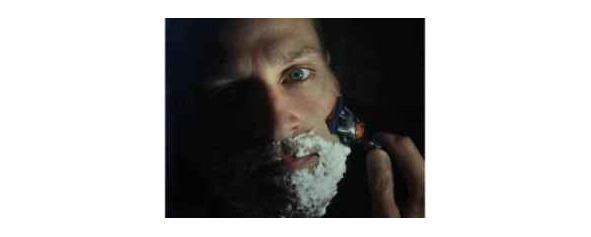
“Start shaving slowly to avoid cuts.”
“I’m shaving my cheek with care.”
slowly [‘sləʊli] (comes from: slow [sləʊ])
avoid [ə‘vɔid]
cut [kʌt]
cuts [kʌts]
cheek [ʧi: k]
care [keər]
with care
85
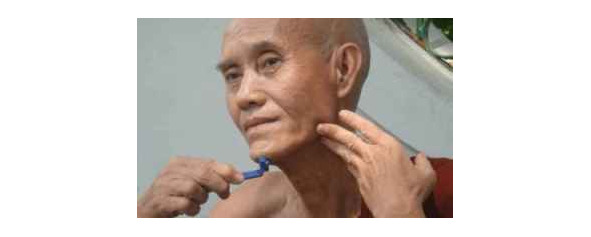
“Have you finished shaving?”
“Not yet. I’m shaving my chin.”
yet [jet]
not yet
chin [tʃin]
86
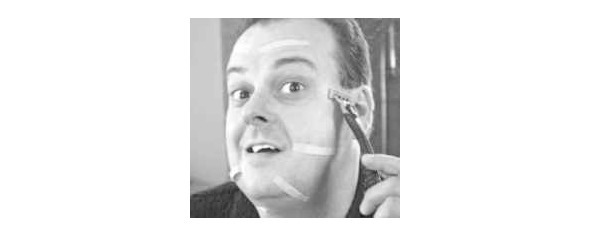
“What happened to your face?”
“I cut myself while shaving.”
happen [‘hæpən]
happened [‘hæpənd]
happened to
cut myself
while [wail]
87

“Apply the balm after shaving.”
“I will.”
balm [bɑ: m] = balsam [bɔ: lsəm]
after shaving
Revision
Translate the dialogues from English into your language.
74.
“Are you going to shave your face?”
“Yes, I am.”
75.
“Shave with an electric razor.”
“No, I don’t use one.”
76.
“Do you use a disposable razor?”
“No, I don’t.”
77.
“Do you usually use a cartridge razor?
“Yes, I do.”
78.
“Have you ever used a safety razor?”
“Yes, I have.”
79.
“Have you ever used a straight razor?”
“No, I haven’t.”
80.
“Wet the shaving brush with warm water.”
“I’ve wet it.”
81.
“Put the shaving cream on the brush.”
“I’ve put it on the brush.”
82.
“Apply the shaving cream to your face.”
“I’ve applied it.”
83.
“Take a razor.”
“I’ll take this one.”
84.
“Start shaving slowly to avoid cuts.”
“I’m shaving my cheek with care.”
85.
“Have you finished shaving?”
“Not yet. I’m shaving my chin.”
86.
“What happened to your face?”
“I cut myself while shaving.”
87.
“Apply the balm after shaving.”
“I will.”
Hair Care
88
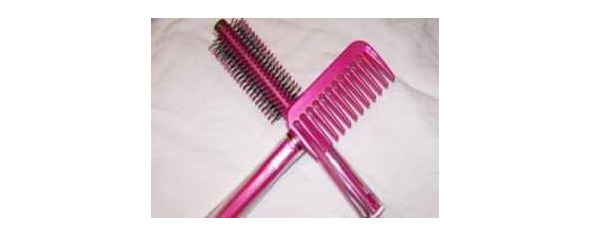
“Do you use a comb or a hairbrush?”
“Both.”
hairbrush [‘heərbrʌʃ]
both [boʊθ]
89
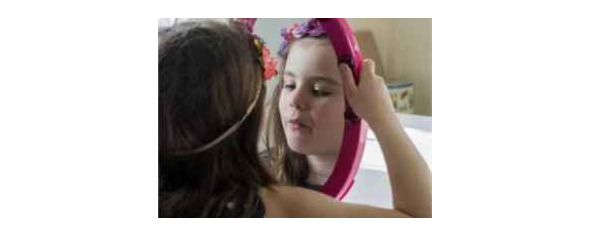
“Look at yourself in the mirror!”
“What’s wrong?”
look at
mirror [‘mirər]
wrong [rɔ: ŋ]
90
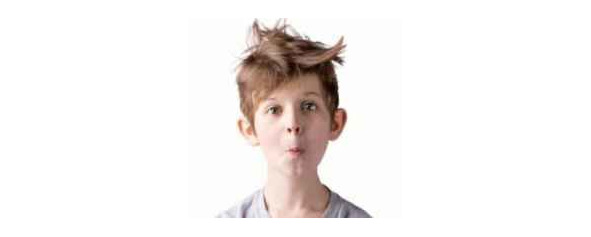
“Your hair is uncombed.”
“So what?”
uncombed [ʌn‘koʊmd]
so what
91
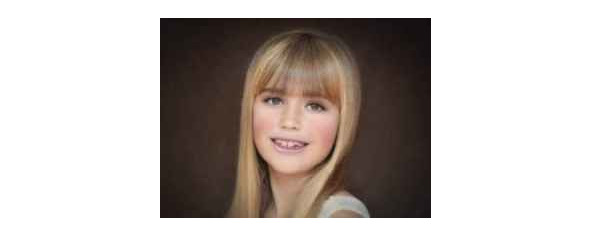
“Comb your hair!”
“I have combed it.”
comb [koʊm]
combed
92
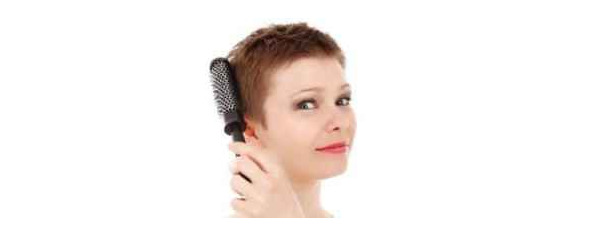
“Brush your hair!”
“I’m brushing it.”
brush [brʌʃ]
brushing
93
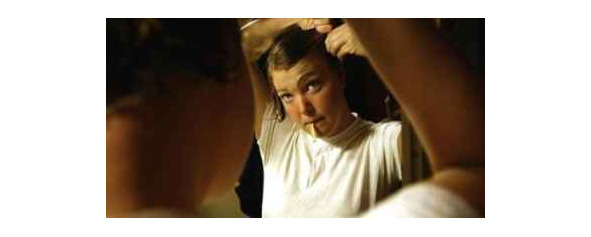
“Do your hair!”
“That’s what I’m doing.”
do hair
that’s what
94
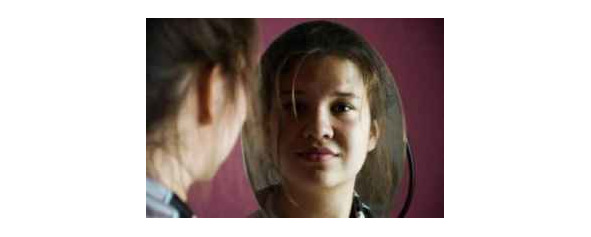
“Have you done your hair?”
“Not yet. I am still disheveled.”
done your hair
still [stil]
disheveled [di‘ʃevəld] (base form: dishevel [di‘ʃevəl])
95
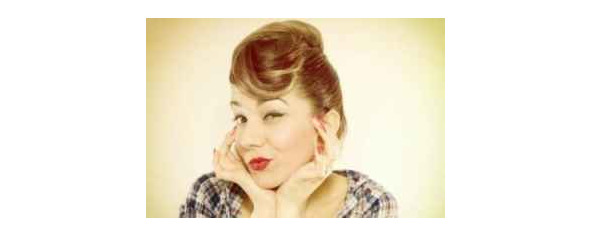
“Have you done your hair?”
“Yes, I have. Look at my hairdo!”
hairdo [‘heərdu: ]
96
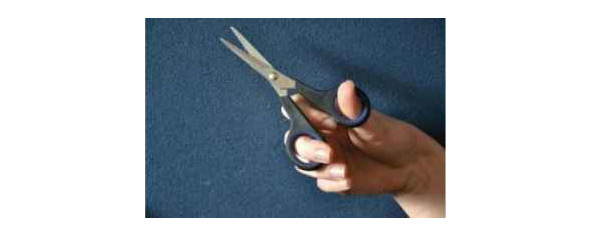
“Take the scissors.”
“I’ve taken them.”
scissors [‘sizərz]
97
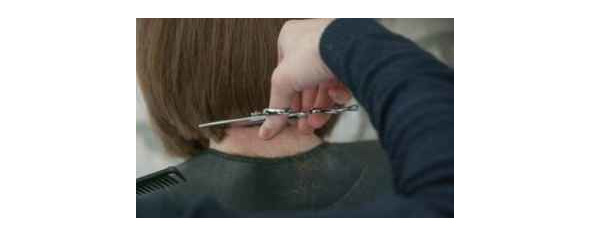
“Cut my hair with the scissors.”
“Okay, don’t move.”
cut with
okay [oʊ‘kei]
98
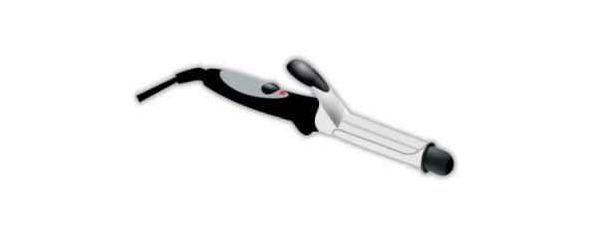
“Give me the hair iron.”
“Here it is.”
give [giv]
iron [‘aiərn]
hair iron
here it is
99
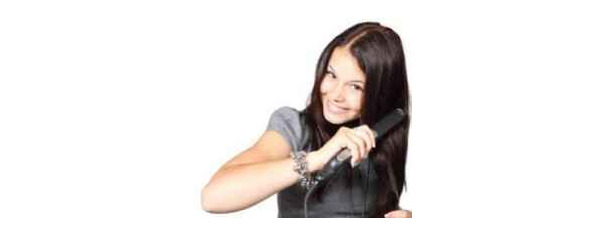
“What are you doing?”
“I’m straightening my hair with the iron.”
straightening [‘streitəniŋ] (base form: straighten [‘streitən])
straightening with
Revision
Translate the dialogues from English into your language.
88.
“Do you use a comb or a hairbrush?”
“Both.”
89.
“Look at yourself in the mirror!”
“What’s wrong?”
90.
“Your hair is uncombed.”
“So what?”
91.
“Comb your hair!”
“I have combed it.”
92.
“Brush your hair!”
“I’m brushing it.”
93.
“Do your hair!”
“That’s what I’m doing.”
94.
“Have you done your hair?”
“Not yet. I am still disheveled.”
95.
“Have you done your hair?”
“Yes, I have. Look at my hairdo!”
96.
“Take the scissors.”
“I’ve taken them.”
97.
“Cut my hair with the scissors.”
“Okay, don’t move.”
98.
“Give me the hair iron.”
“Here it is.”
99.
“What are you doing?”
“I’m straightening my hair with the iron.”
Using Cosmetics
100

“Are you wearing any makeup today?”
“No, I’m not.”
wearing [‘weəriŋ] (base form: wear [weər])
any [‘eni]
makeup [‘meikʌp]
today [tə‘dei]
101
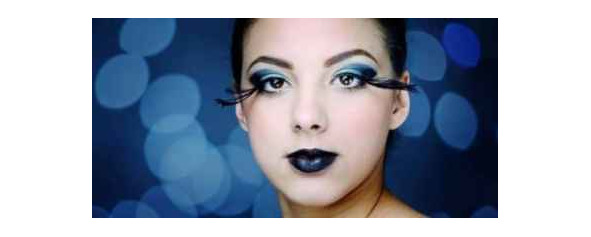
“Do you often wear makeup?”
“All the time.”
often [ɔ: fən]
all the time
102
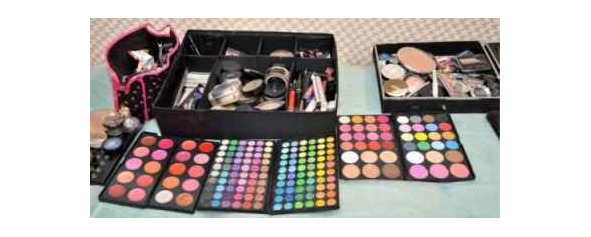
“Where do you store your cosmetics?”
“In bags and boxes.”
store [stɔ: r]
cosmetics [kɔz’metiks]
bags [bægz] (base form: bag [bæg])
boxes [‘bɔksiz] (base form: box [bɔks])
103
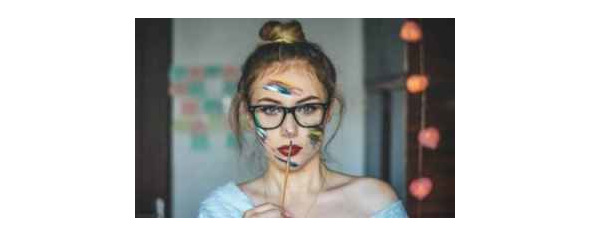
“Do you know how to apply makeup?”
“Of course, I do.”
apply makeup
course [kɔ: rs]
of course [əv‘kɔ: rs]
104
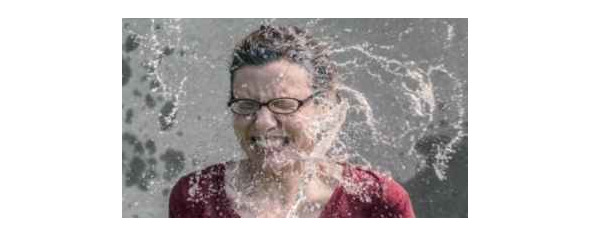
“First, wash off any old makeup.”
“I’m washing it off.”
first [fə: rst]
wash off
old [oʊld]
washing off
105
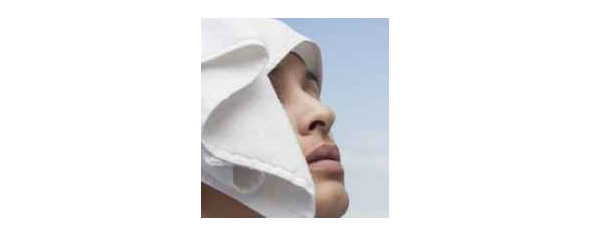
“Then towel your face dry.”
“I’ve toweled it dry.”
then [‘ðen]
towel [‘taʊəl]
dry [drai]
toweled [‘taʊəld]
106
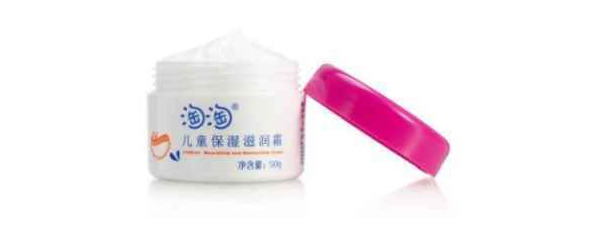
“Next open a moisturizing cream jar.”
“I’ve opened one.”
moisturizing [‘mɔistʃəraiziŋ] (base form: moisture [‘mɔisʧər])
jar [dʒɑ: r]
cream jar [‘kri: m ‘dʒɑ: r]
107
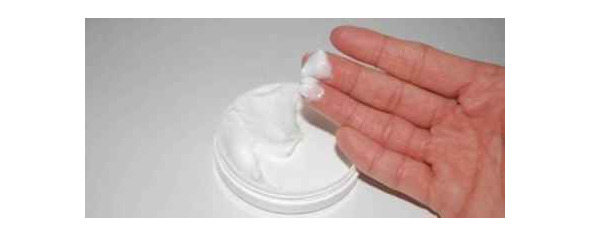
“Dip your fingers in the cream.”
“I’ve dipped them.”
dip [dip]
fingers [‘fiŋɡərz] (base form: finger [‘fiŋɡər])
dipped [‘dipt]
108
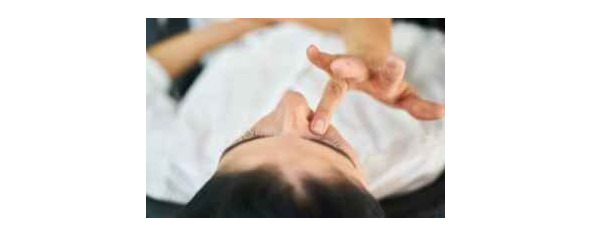
“Apply the cream to your face.”
“I’m applying it.”
applying [ə‘plaiiŋ]
109
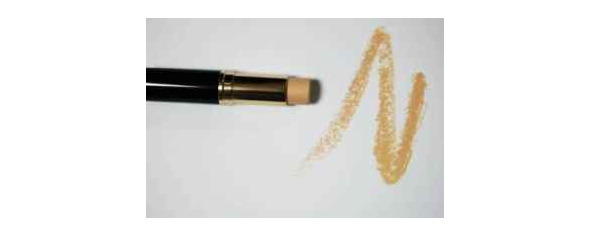
“Put on foundation.
“I’ve put it on.”
foundation [faʊn‘deiʃn]
110
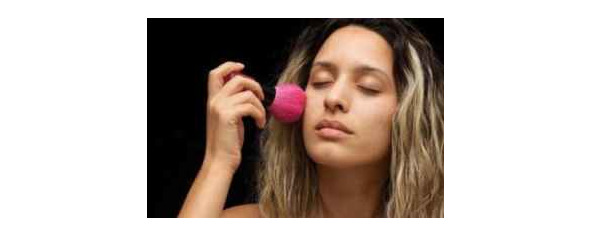
“Blend the foundation with a brush.”
“I’m blending it.”
blend [blend]
blending [‘blendiŋ]
111
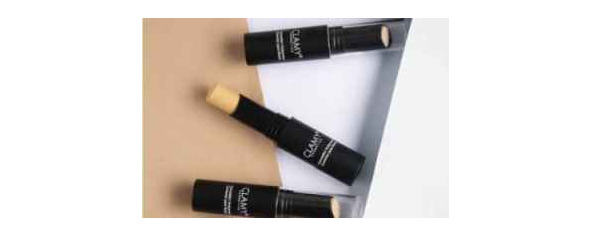
“What is a concealer used for?”
“To cover blemishes.”
concealer [kən‘si: lə]
cover [‘kʌvər]
blemishes [‘blemiʃəz] (base form: blemish [‘blemiʃ])
112
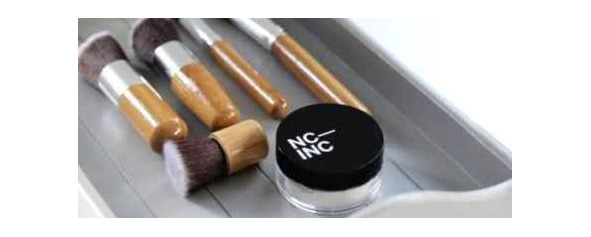
“Set the cream with the powder.”
“I don’t use the powder.”
set [‘set]
powder [‘paʊdər]
113
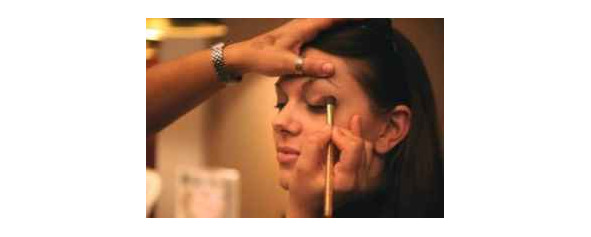
“Apply eye shadow to my eyelids.”
“I’m applying it.”
shadow [‘ʃædoʊ]
eye shadow [‘ai ‘ʃædoʊ]
lid [lid]
eyelids [‘ailidz]
114
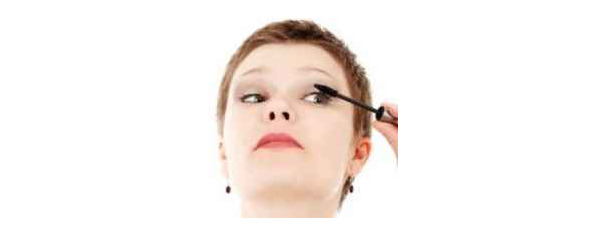
“Put mascara on your eyelashes.”
“I’m putting it on.”
mascara [mæ‘skerə]
eyelashes [‘ailæʃəz]
115
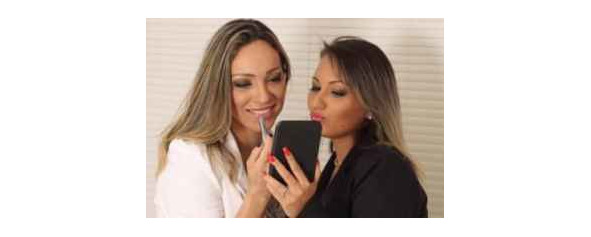
“Apply lipstick to your lips.”
“I’ve already applied it.”
lipstick [‘lipstik]
116
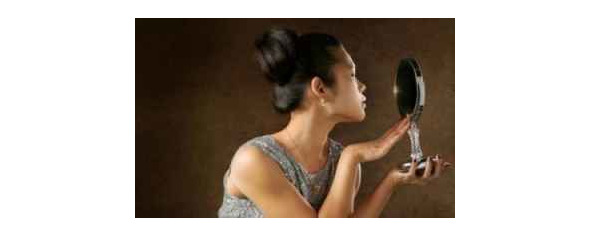
“How do I look?”
“You look great!”
look [lʊk]
look great [lʊk ɡreit]
Revision
Translate the dialogues from English into your language.
100.
“Are you wearing any makeup today?”
“No, I’m not.”
101.
“Do you often wear makeup?”
“All the time.”
102.
“Where do you store your cosmetics?”
“In bags and boxes.”
103.
“Do you know how to apply makeup?”
“Of course, I do.”
104.
“First, wash off any old makeup.”
“I’m washing it off.”
105.
“Then towel your face dry.”
“I’ve toweled it dry.”
106.
“Next open a moisturizing cream jar.”
“I’ve opened one.”
107.
“Dip your fingers in the cream.”
“I’ve dipped them.”
108.
“Apply the cream to your face.”
“I’m applying it.”
109.
“Put on foundation.
“I’ve put it on.”
110.
“Blend the foundation with a brush.”
“I’m blending it.”
111.
“What is a concealer used for?”
“To cover blemishes.”
112.
“Set the cream with the powder.”
“I don’t use the powder.”
113.
“Apply eye shadow to my eyelids.”
“I’m applying it.”
114.
“Put mascara on your eyelashes.”
“I’m putting it on.”
115.
“Apply lipstick to your lips.”
“I’ve already applied it.”
116.
“How do I look?”
“You look great!”
Getting Dressed
117
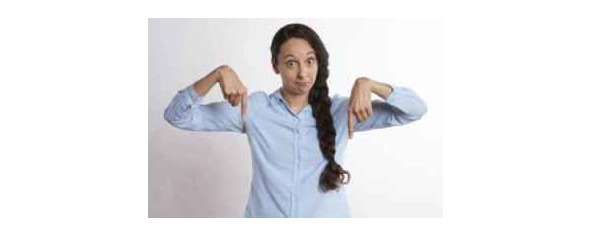
“What should I do next?”
“Change your clothes.”
should [ʃʊd]
change [tʃeindʒ]
118
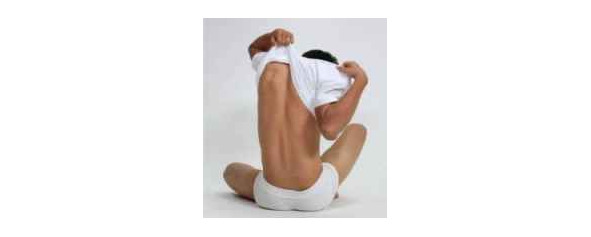
“Take off your undershirt.”
“I’m taking it off.”
undershirt [‘ʌndərʃə: rt]
119
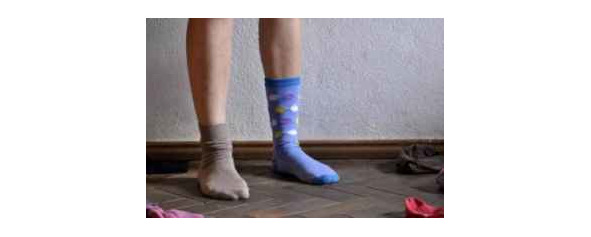
“Why are you wearing odd socks?”
“I could not find the paired ones.”
odd [ɔd]
odd socks [ɔd sɔks]
find [faind]
paired [peərd]
120
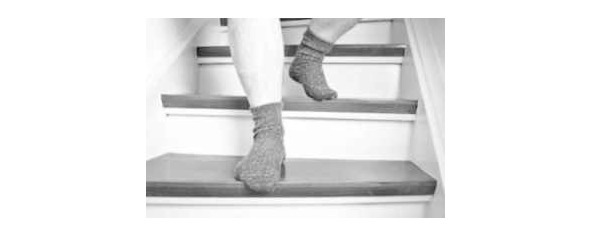
“Have you managed to find paired socks?”
“Yes, I have. I found them a minute ago.”
managed [‘mænədʒd]
found [faʊnd]
ago [ə‘ɡoʊ]
a minute ago [ə ‘minət ə‘ɡoʊ]
121

“Put on your shirt.”
“I’ve put it on.”
shirt [ʃə: rt]
122
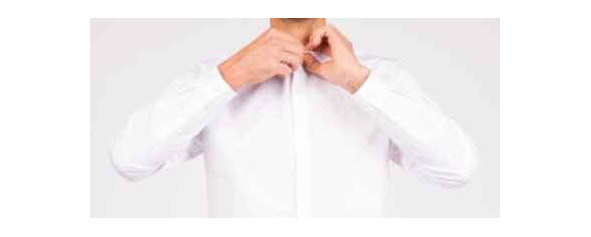
“Button up your shirt.”
“I’m buttoning it up.”
button [bʌtn]
button up [‘bʌtnʌp]
buttoning [‘bʌtniŋ]
123
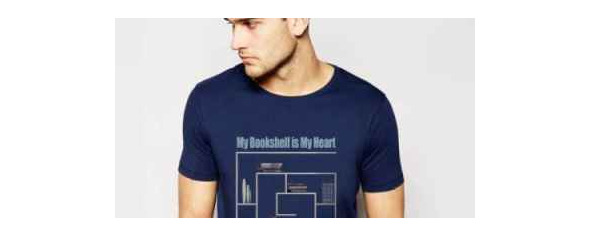
“Put on your t-shirt.”
“I have put it on.”
t-shirt [‘ti: ʃə: rt]
124

“Put on your pants.”
“I have put them on.”
pants [pænts]
125
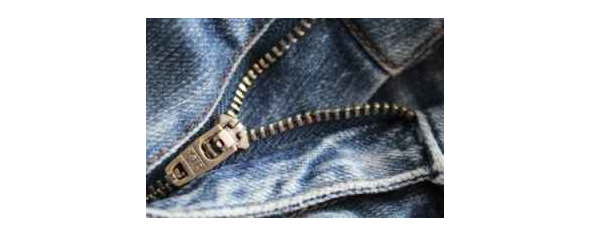
“Your zipper is undone. Pull it up.”
“Thanks for the hint.”
zipper [‘zipər] (AM) = zip (BRIT)
undone [ʌn’dʌn] (undo [ʌn’du: ]
pull up
thanks [θæŋks]
hint [hint]
126
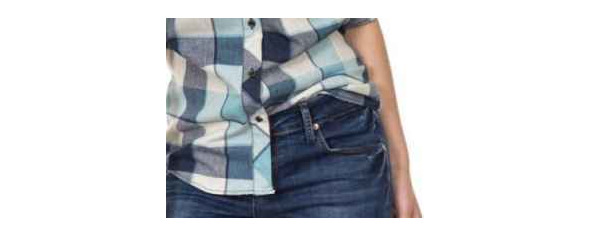
“Tuck in your shirt.”
“No, I wear it outside my pants.”
tuck [tʌk]
tuck in
outside [aʊt‘said]
127
Бесплатный фрагмент закончился.
Купите книгу, чтобы продолжить чтение.
